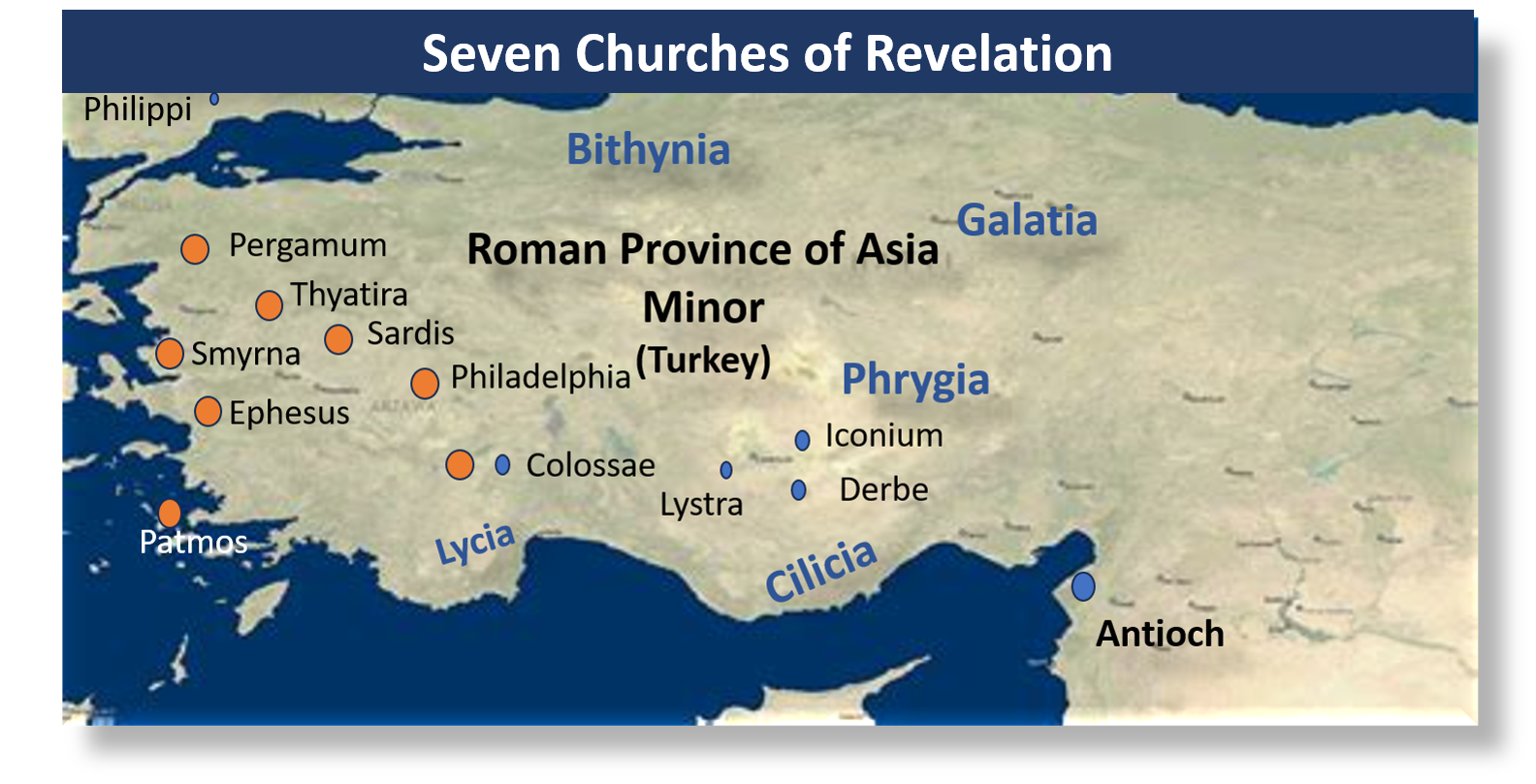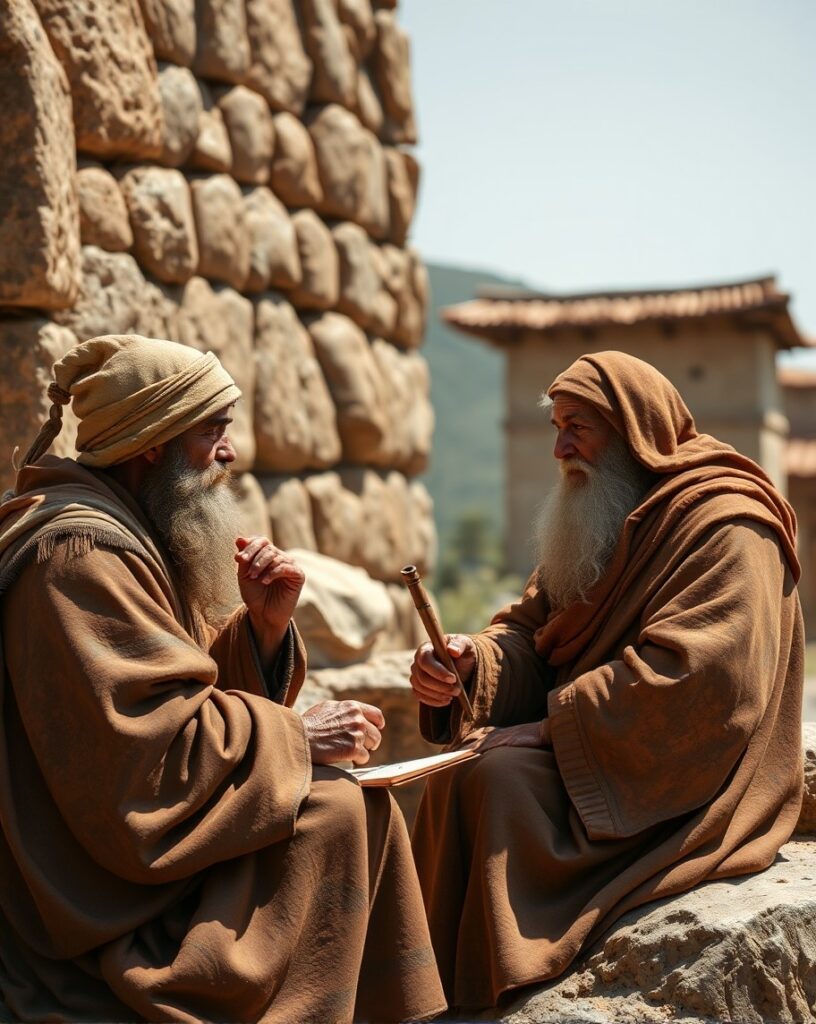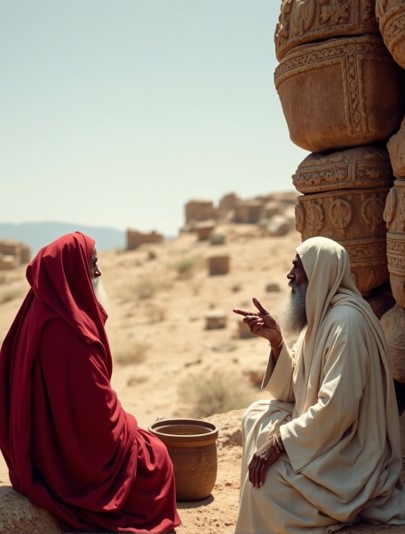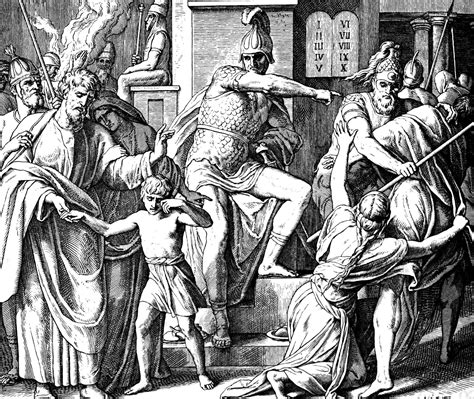
The Revelation is Sent to the Church in Smyrna

(*All Bible references are from the NIV unless otherwise noted)
Chapter 2:8-11
Rev 2:8 “To the angel of the church in Smyrna write: These are the words of him who is the First and the Last, who died and came to life again.
Rev 2:9 I know your afflictions and your poverty—yet you are rich! I know about the slander of those who say they are Jews and are not, but are a synagogue of Satan.
Rev 2:10 Do not be afraid of what you are about to suffer. I tell you, the devil will put some of you in prison to test you, and you will suffer persecution for ten days. Be faithful, even to the point of death, and I will give you life as your victor’s crown.
Rev 2:11 Whoever has ears, let them hear what the Spirit says to the churches. The one who is victorious will not be hurt at all by the second death.
Rev 2:8
To the angel of the church in Smyrna:
The ruins of Biblical Smyrna are near the modern Turkish city of Izmir. The name Smyrna means “myrrh,” which is a resin obtained from the Commiphora Myrrha tree1. Myrrh, one of the three expensive gifts of the Magi, was a critical ingredient used to embalm bodies because one of its major properties was its ability to retard the putrefaction of dead flesh.
According to Josephus in his History of the Jews, a significant community of Jews and at least one synagogue was located in Smyrna. Christians there faced persecution from the Jewish community as well as their pagan neighbors. Polycarp, who had been taught by the Apostle John, was martyred in Smyrna at the instigation of Jews in about 156 AD2.
There is still a significant Christian presence in Izmir, with several churches and a cathedral dedicated to Saint John3.
Rev 2:8
Him who is the First and the Last, who died and came to life again:

The eternal nature of Christ Jesus is central to our Christian faith.
John 1:1-5 1In the beginning was the Word, and the Word was with God, and the Word was God. 2He was with God in the beginning. 3Through him all things were made; without him nothing was made that has been made. 4In him was life, and that life was the light of all mankind. 5The light shines in the darkness, and the darkness has not overcome it.
1 Cor 15:20-23 But Christ has indeed been raised from the dead, the firstfruits of those who have fallen asleep. 21For since death came through a man, the resurrection of the dead comes also through a man. 22For as in Adam all die, so in Christ all will be made alive. 23But each in turn: Christ, the firstfruits; then, when he comes, those who belong to him.
Compare the following translations of Exodus 3:13-14:
NIV Moses said to God, “Suppose I go to the Israelites and say to them, ‘The God of your fathers has sent me to you,’ and they ask me, ‘What is his name?’ Then what shall I tell them?” 14 God said to Moses, “I AM WHO I AM. This is what you are to say to the Israelites: ‘I AM has sent me to you.’ ”
The Complete Jewish Bible: 13 Moshe said to God, “Look, when I appear before the people of Isra’el and say to them, ‘The God of your ancestors has sent me to you’; and they ask me, ‘What is his name?’ what am I to tell them?” 14 God said to Moshe, “Ehyeh Asher Ehyeh [I am/will be what I am/will be],” and added, “Here is what to say to the people of Isra’el: ‘Ehyeh [I Am or I Will Be] has sent me to you.’”
The Jewish text identifies God not only as “I am” but also as “I Will Be,” more fully expressing God’s eternal nature.
Rev 2:9
I know your afflictions and your poverty–yet you are rich!
In times of plenty and times of trial, Christians can approach God in faith and confidence!
Jer 29:11 For I know the plans I have for you,” declares the LORD, “plans to prosper you and not to harm you, plans to give you hope and a future.
Matt 6:31 So do not worry, saying, ‘What shall we eat?’ or ‘What shall we drink?’ or ‘What shall we wear?’ 32 For the pagans run after all these things, and your heavenly Father knows that you need them. 33 But seek first his kingdom and his righteousness, and all these things will be given to you as well.
Rom12:2 Do not conform to the pattern of this world, but be transformed by the renewing of your mind. Then you will be able to test and approve what God’s will is—his good, pleasing and perfect will.
1 John 3:21 Dear friends, if our hearts do not condemn us, we have confidence before God 22 and receive from him anything we ask, because we keep his commands and do what pleases him.
Rev 2:9
I know about the slander of those who say they are Jews and are not, but are a synagogue of Satan:
A synagogue is a place of worship, assembly, and study in Judaism. The Greek word synagein means “to bring together” or “a place of assembly.” The Yiddish word shul (from German Schule, “school”) is also used to refer to the synagogue, and in modern times, the word temple is common among some Reform and Conservative congregations4.
The oldest dated evidence of a synagogue is from the 3rd century BC, but synagogues doubtless have an older history. Some scholars think that the capture of Jerusalem and the destruction of Solomon’s Temple by the Babylonians in 586 BC gave rise to synagogues as places of public worship and religious instruction5.
Powerful groups of influential Jewish leaders evolved from those tumultuous years – the Scribes, Pharisees, and Sadducees. Jesus told his followers to respect these leaders due to their position of authority but not to emulate them, “…for they do not practice what they preach. They tie up heavy, cumbersome loads and put them on other people’s shoulders, but they themselves are not willing to lift a finger to move them. Everything they do is done for people to see” (Matthew 23:3–5).
These leaders claimed to know God and to be responsible for helping others follow His ways. Instead, their rigid and legalistic approach to God’s Law made it a weighty and difficult burden for the common folk.
Scribes knew secular and religious law and could draft legal documents such as contracts for marriage, divorce, loans, inheritance, mortgages, and the sale of land. They were a body of teachers whose office was to interpret the Law for the people. The original meaning of the Hebrew word “soferim” was “people who know how to write6.” Typically, literacy and the art of writing were known only to a few educated individuals, and the term “scribe” became synonymous with “wise man7.”

The Pharisees were the most numerous and influential leaders. They were strict legalists and took tremendous pride in their uncompromising observance of the Jewish traditions and following the letter of the Mosaic Law.8
The Pharisees evolved from the scribes and became the religious leaders of the nation9. Their theology revolved around maintaining a strict separation between people and things they believed the Law defined as clean and unclean. The name Pharisee is from the Greek word pharisaios, meaning separated one10. They aimed to preserve their national integrity and strict conformity to Mosaic law, which led many Pharisees to become self-righteous and hypocritical formalists.11
The Sadducean party came from the ranks of the priests and the social elite. These leaders wanted to maintain the influential leadership of the priestly cast but were also willing to integrate Greek Hellenistic culture into their lives, something the Pharisees vehemently opposed12.
According to Abraham Geiger, a German Rabbi and scholar, the Sadducee sect of Judaism derived its name from Zadok, a High Priest of ancient Israel during Solomon’s reign. The name Zadok is related to the Hebrew root, ṣāḏaq (to be right, just)13.
The Sadducees rejected the idea of an afterlife and angels (Acts 23:8), and their main focus remained on the rituals associated with the Temple14. Both Pharisees and Sadducees participated in the leadership of the Great Sanhedrin15.

While the Pharisees carried on after the destruction of Jerusalem in 70 A.D. and became the fathers of modern Judaism, the Sadducees disappeared around the same time. No writings of the Sadducees have survived, and what little is known about them comes from the New Testament and texts of their Pharisaic opponents16.
Jesus censured all these groups, claiming the Pharisees and Scribes were more concerned with legalistic theological issues than the needs and welfare of the people, and the Sadducees were jealously guarding their own personal safety and social position!
Matt 12:33 “Make a tree good and its fruit will be good, or make a tree bad and its fruit will be bad, for a tree is recognized by its fruit. 34 You brood of vipers, how can you who are evil say anything good? For the mouth speaks what the heart is full of…36 But I tell you that everyone will have to give account on the day of judgment for every empty word they have spoken. 37 For by your words you will be acquitted, and by your words you will be condemned.” 38 Then some of the Pharisees and teachers of the law said to him, “Teacher, we want to see a sign from you.” 39 He answered, “A wicked and adulterous generation asks for a sign! But none will be given it except the sign of the prophet Jonah.
Matt 23:13 “Woe to you, teachers of the law [ESV, scribes] and Pharisees, you hypocrites! You shut the door of the kingdom of heaven in people’s faces. You yourselves do not enter, nor will you let those enter who are trying to…15 “Woe to you, teachers of the law and Pharisees, you hypocrites! You travel over land and sea to win a single convert, and when you have succeeded, you make them twice as much a child of hell as you are.
Matt 23:23 “Woe to you, teachers of the law and Pharisees, you hypocrites! You give a tenth of your spices—mint, dill and cumin. But you have neglected the more important matters of the law—justice, mercy and faithfulness. You should have practiced the latter, without neglecting the former…25 “Woe to you, teachers of the law and Pharisees, you hypocrites! You clean the outside of the cup and dish, but inside they are full of greed and self-indulgence.
Matt 12:14 But the Pharisees went out and plotted how they might kill Jesus.
Each of these groups felt threatened by Jesus’ teachings. The Scribes felt their standing among the people as law experts was threatened. The Pharisees grew angry because Jesus challenged their legalistic approach to serving God, and the Sadducees were afraid their elite standing among the Romans might dissolve if too many people were stirred to follow Jesus!
The Hebrew word satan and Greek satanas both mean opponent, adversary, or accuser17. Calling these groups the “synagogue of Satan” refers back to these slanderous accusations against Jesus and his followers.
Rev 2:9
Do not be afraid of what you are about to suffer…even to the point of death:
God’s children have always suffered persecution. The author of Hebrews talks about the judges and prophets throughout history who suffered at the hands of evil men:
Heb 11:35-37 There were others who were tortured, refusing to be released so that they might gain an even better resurrection. 36 Some faced jeers and flogging, and even chains and imprisonment. 37 They were put to death by stoning, they were sawed in two, they were killed by the sword. They went about in sheepskins and goatskins, destitute, persecuted and mistreated…

The early saints suffered in kind. Their lifestyles of generosity, humility, and pacifism, under the guidance of a One True God, while considered decent behavior today, were seen as bizarre and anti-social to their pagan neighbors. It engendered suspicion and resentment, fear of change, and rejection of millennia of tradition. Mostly, it stirred up jealousy among those afraid of losing power and influence:
Acts 5:16 Crowds gathered also from the towns around Jerusalem, bringing their sick and those tormented by impure spirits, and all of them were healed. 17 Then the high priest and all his associates, who were members of the party of the Sadducees, were filled with jealousy. 18 They arrested the apostles and put them in the public jail.
Acts 8:1 And Saul approved of their killing [Stephen]. On that day a great persecution broke out against the church in Jerusalem, and all except the apostles were scattered throughout Judea and Samaria.
Acts 13:45 When the Jews saw the crowds, they were filled with jealousy. They began to contradict what Paul was saying and heaped abuse on him.
Acts 13:50 But the Jewish leaders incited the God-fearing women of high standing and the leading men of the city. They stirred up persecution against Paul and Barnabas, and expelled them from their region.
Acts 17:5 But other Jews were jealous; so they rounded up some bad characters from the marketplace, formed a mob and started a riot in the city. They rushed to Jason’s house in search of Paul and Silas in order to bring them out to the crowd.
Most people have adverse reactions to criticism. Many have felt guilt or humiliation after realizing the other person was right! Too often, our first reactions are anger and stubborn refusal to accept the truth! Only continued surrender to the Holy Spirit of Truth allows most of us to humbly and graciously admit our faults and flaws to ourselves and others.
Jesus offers hope, even under the burden of persecution and rejection!
Matthew 16:18 And I tell you that you are Peter, and on this rock I will build my church, and the gates of Hades will not overcome it.
John 10:28 I give them eternal life, and they shall never perish; no one will snatch them out of my hand. 29 My Father, who has given them to me, is greater than all; no one can snatch them out of my Father’s hand.
John 11:25 Jesus said to her, “I am the resurrection and the life. The one who believes in me will live, even though they die;
Rev 2:10
You will suffer persecution for ten days:
History confirms that persecution of believers has continued for centuries, not just ten days. Consider again the use of symbolic numbers in verses such as:
Gen 24:60 And they blessed Rebekah and said to her,“Our sister, may you increase to thousands upon thousands; may your offspring possess the cities of their enemies.”
Deut 7:9 Know therefore that the LORD your God is God; he is the faithful God, keeping his covenant of love to a thousand generations of those who love him and keep his commandments.
Psa 50:10 … for every animal of the forest is mine, and the cattle on a thousand hills.
Psa 68:17 The chariots of God are tens of thousands and thousands of thousands; the Lord has come from Sinai into his sanctuary.
Psa 90:4 A thousand years in your sight are like a day that has just gone by, or like a watch in the night.
2 Pet 3:8 But do not forget this one thing, dear friends: With the Lord a day is like a thousand years, and a thousand years are like a day.
Some scholars have tried to equate the “ten days” with the major waves of persecution that assailed the early church:

However, most of the persecutions during these centuries were short-lived and usually local in nature; very few were empire-wide edicts (the persecution ordered by Diocletian being a notable exception).
Although such waves of persecution would end with many devout Christians giving up their lives for Christ as martyrs or confessors, many others succumbed to fear or torture and denied their faith. This issue compelled church leaders to answer important questions: Should believers actively seek martyrdom? Should one avoid martyrdom at all costs? How was the Church to treat those who denied being a Christian to avoid arrest or death but were true believers in their hearts?
Theologians such as Origen of Alexandria (c.185-c.253) encouraged pursuing martyrdom as the purist form of faith. He died in old age as the result of wounds suffered during torture. Cyprian of Carthage (c.210-258) maintained that church members should avoid persecution lest they succumb and deny Christ, but, if captured, should proclaim their faith boldly18.
When someone denied the faith to escape arrest and then desired to return to the Church, there was great controversy over how they should be received. Novatian, a theologian who lived around 200-258 AD, preached a strict view that did not allow baptized Christians who had denied their faith during persecution to rejoin the church. These Christians were known as lapsi. When Cyprian of Carthage (c. 210-258 AD) and Ambrose of Milan (c. 339-397 AD) spoke out against this practice, Novatian and his followers were declared heretics. Despite this, Novatianism continued to exist until the 8th century.19
In a broader sense, “ten days” suggests a limited period of time. The symbolic number 10 represents testimony, law, responsibility, and the completeness of order20. The “ten days” symbol suggests a limited amount of time in which God’s plans are to be accomplished.
Rev 2:11
He who overcomes will not be hurt at all by the second death:
John’s Revelation is the only place in the Bible that mentions the “second death.” Rev 21:8 gets very specific as to who will suffer this end:
Rev 21:8 But the cowardly, the unbelieving, the vile, the murderers, the sexually immoral, those who practice magic arts, the idolaters, and all liars—they will be consigned to the fiery lake of burning sulfur. This is the second death.”
(see also Rev 20:6, 20:14)
Similar lists of sins can be found in 1 Cor 6:9-10 and Gal 5:19- 21. 1 John 1:8 says that if we say we haven’t sinned, we deceive ourselves, and Rom 3:23 says we all have sinned and fall short!
So, a dilemma presents itself. Every faithful believer has, at one time or another, committed one or more of these trespasses. So, who will suffer the second death? Part of the answer is found in the Gospel of Matthew:
Matt 12:31 And so I tell you, every kind of sin and slander can be forgiven, but blasphemy against the Spirit will not be forgiven. 32 Anyone who speaks a word against the Son of Man will be forgiven, but anyone who speaks against the Holy Spirit will not be forgiven, either in this age or in the age to come.
John consistently defines the Holy Spirit as the presence of God’s “truth”:

John 14:15 “If you love me, keep my commands. 16 And I will ask the Father, and he will give you another advocate to help you and be with you forever—17 the Spirit of truth. The world cannot accept him, because it neither sees him nor knows him. But you know him, for he lives with you and will be in you.
John 16:13 But when he, the Spirit of truth, comes, he will guide you into all the truth. He will not speak on his own; he will speak only what he hears, and he will tell you what is yet to come.
1John 5:6 This is the one who came by water and blood—Jesus Christ. He did not come by water only, but by water and blood. And it is the Spirit who testifies, because the Spirit is the truth.
The Greek word blasphemia (blasphemy) means to revile, vilify, speak against, and to deny. To know something is true and deny it is a deliberate action, not an accident or momentary doubt. For example, I know my daughter is mine. I was in the birthing room and saw her come into the world. I have been in that same hospital many times. I know the doctor and have seen the birth records. For me to deny, revile, and speak against the truth that she’s my daughter would be a deliberate effort on my part to mislead and hurt others! To continue to do so with no remorse or regret would be mean-spirited and abhorrent!
The very nature of the Holy Spirit is truth! To be filled by that Spirit is to know God’s love, kindness, and trustworthiness! To know that truth and deliberately speak against it to lie to others regarding it; to revile and vilify it, implies a heart in which there is no repentance.
The Scriptures testify that if there is sincere repentance, sins are washed away and never remembered:
Jer 31:34 No longer will they teach their neighbor, or say to one another, ‘Know the LORD,’ because they will all know me, from the least of them to the greatest,” declares the LORD. “For I will forgive their wickedness and will remember their sins no more.”
Isa 43:25 “I, even I, am he who blots out your transgressions, for my own sake, and remembers your sins no more.
2Chr 7:14 If my people, which are called by my name, shall humble themselves, and pray, and seek my face, and turn from their wicked ways; then will I hear from heaven, and will forgive their sin, and will heal their land.

1John 1:9 If we confess our sins, he is faithful and just and will forgive us our sins and purify us from all unrighteousness.
1John 2:1 My dear children, I write this to you so that you will not sin. But if anybody does sin, we have an advocate with the Father—Jesus Christ, the Righteous One. 2 He is the atoning sacrifice for our sins, and not only for ours but also for the sins of the whole world.
Eph 1:7 In him we have redemption through his blood, the forgiveness of sins, in accordance with the riches of God’s grace…
As hard as it is to imagine, there will be those who know the truth of God but will choose a life of evil and lies:
- Those who, after all the saving efforts of the Holy Spirit, in complete awareness of what they are doing, refuse the Spirit of Truth.
- They have no remorse for their sins and choose to live as unredeemed enemies of God. “They cling to deceit; they refuse to return.” (Jer 8:5)
- “These are persons who have committed themselves to the falseness that is the essential nature of the beast and the dragon – Satan. They freely choose to be identified with the enemy of righteousness, so will suffer the same fate!”21
- They will not want, nor will they accept, God’s free gift of redemption.
- “By their own choice Babylon, and not the New Jerusalem, is their eternal home”22.
Footnotes
- Smyrna, Bible Study / Biblestudy.orghttps://www.biblestudy.org/biblepic/churches-of-revelation-smyrna.html, retrieved February 11, 2022. ↩︎
- Eusebius, History of the Church, Book 4, Chapters14-15, and Polycarp’s Letter to the Philippians. ↩︎
- https://turkeyguzel.com/christian-churches-in-izmir-turkey/, Retrieved Dec. 13, 2023. ↩︎
- Synagogue: https://www.britannica.com/topic/synagogue, retrieved Dec. 14, 2023. ↩︎
- Ibid. ↩︎
- Ibid. ↩︎
- Ibid. ↩︎
- Origin of the Pharisees, Bible History Online, https://www.bible-history.com/pharisees/phariseesorigin.htm, retrieved November 20, 2021. ↩︎
- Ibid. ↩︎
- Ibid. ↩︎
- Ibid. ↩︎
- Sadducees: https://www.jewishvirtuallibrary.org/pharisees-sadducees-and-essenes, retrieved Dec. 14, 2023. ↩︎
- Sadducees: https://www.encyclopedia.com/philosophy-and-religion/judaism/judaism/sadducees, retrieved Dec. 14, 2023. ↩︎
- Sadducees: https://www.jewishvirtuallibrary.org/pharisees-sadducees-and-essenes, retrieved Dec. 14, 2023. ↩︎
- The Sanhedrin (Hebrew, sitting together, council) were assemblies of either twenty-three or seventy-one elders (known as rabbis after the destruction of the Second Temple), who were appointed to sit as a tribunal in every city in the ancient Land of Israel. The Great Sanhedrin sat in council in Jerusalem. ↩︎
- Sadducees: https://www.jewishvirtuallibrary.org/pharisees-sadducees-and-essenes, retrieved Dec. 14, 2023. ↩︎
- Strong’s H7854, G4567. ↩︎
- Theology Academy: The Early Persecution of Christians – an Overview of Church History, https://theology-academy.org/the-early-persecution-of-christians-an-overview/, accessed Feb. 5, 2024. ↩︎
- Ibid. ↩︎
- The Meaning of Numbers in the Bible – 10: https://www.biblestudy.org/bibleref/meaning-of-numbers-in-bible/10.html, retrieved Feb 5, 2024. ↩︎
- Caird, G.B., The Revelation of St. John The Divine, Harper and Row, New York, 1966, page 268. ↩︎
- Ibid. ↩︎
*All Scripture quotations, unless otherwise indicated, are taken from the Holy Bible, New International Version®, NIV®. Copyright ©1973, 1978, 1984, 2011 by Biblica, Inc.™ Used by permission of Zondervan. All rights reserved worldwide. www.zondervan.comThe “NIV” and “New International Version” are trademarks registered in the United States Patent and Trademark Office by Biblica, Inc.™





